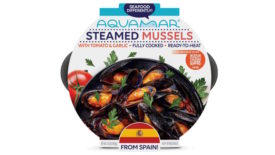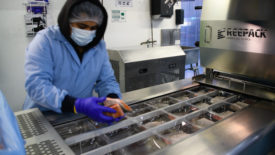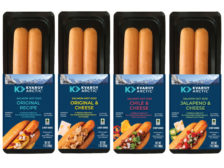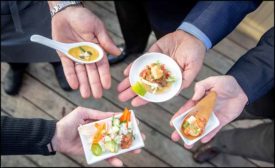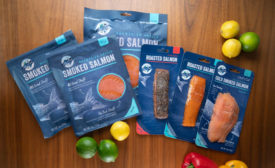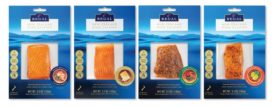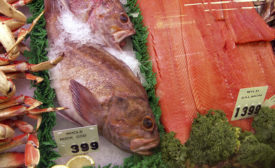Home » Keywords: » seafood trends
Items Tagged with 'seafood trends'
ARTICLES
The Future of Fish
How BlueNalu envisions cellular aquaculture impacting the planet as well as plates in the next few years.
March 25, 2021
Report shows increasing momentum behind sustainable seafood
For the first time, sales of seafood with the blue MSC label reached 1 million tons per year, supported by an increase in MSC-certified seafood catch of 34% over the past 5 years.
October 10, 2019
Study: Rising demand for seafood to provide impetus to aquaculture market
The global aquaculture market is projected to be ruled by North America during the forecast period.
May 21, 2019
University of Louisiana at Lafayette secures grant to expand sustainable seafood study
The money will enable university researchers to examine the seafood supply chain in seven coastal parishes.
April 29, 2019
Study: Seafood processing equipment market worth $2.51M by 2025
Scaling equipment is expected to have a significant CAGR of 2.5% during the forecast period.
April 23, 2019
Get our new eMagazine delivered to your inbox every month.
Stay in the know on the latest food and beverage manufacturing markets.
SUBSCRIBE TODAYCopyright ©2024. All Rights Reserved BNP Media.
Design, CMS, Hosting & Web Development :: ePublishing
